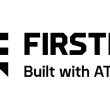Tough times continue for Sprint Nextel
It was more bad news for Sprint Nextel last month, as the wireless carrier announced the departure of its CEO and said it would fail to meet its financial guidance for the year.
Gary Forsee resigned as CEO. He oversaw Sprint’s $35 billion acquisition of Nextel in 2005 — an acquisition that has failed so far to create any synergies or capital savings. Sprint said it has formed a search committee to find a new CEO. In the meantime, Paul Saleh, Sprint’s chief financial officer, will serve as acting CEO.
To make matters worse, the CDMA/iDEN operator said it lost 337,000 postpaid customers during the third quarter, many defecting from the Nextel push-to-talk (P2T) iDEN network. Moreover, investors are growing impatient over the company’s $5 billion WiMAX buildout plans for what is beginning to look like a market experiment concerning the brand-new technology and the company’s open-access business model. In particular, activist investor Ralph Whitworth has criticized management regarding Sprint Nextel’s investments in WiMAX and what he calls poor attention to the company’s core mobile-phone business.
In addition, credit-rating service Fitch Ratings said it is concerned about Sprint’s lagging effort to switch subscribers from Nextel’s iDEN network to its CDMA network and the cost of deploying WiMAX.
Indeed, the effort to reband 800 MHz spectrum that Nextel undertook before the merger to alleviate radio interference for first responders has become more complicated for the carrier. The effort has resulted in a capacity crunch for its high-value P2T users, who now complain about network quality and are defecting to competitors AT&T and Verizon Wireless.
“Rebanding of the spectrum has proven to be much more difficult than management thought it would be,” said John Byrne, a director with Technology Business Research. “The assumptions about the iDEN network in general were wrong. They thought they could scale back on [capital expenditures] before the merger by implementing a new vocoder. But overall, the limitations of that technology are being revealed.”
What is Sprint to do? Derek Kerton, a consultant with The Kerton Group, said that the only solution is to speed up the rollout of its CDMA EV-DO Rev. A network, the next iteration of EV-DO technology that supports real-time voice-over-IP (VoIP) services, and aggressively move Nextel customers over to the new network. Sprint has been working to do this but has been limited by the number of CDMA/iDEN handsets available on the market.
Shuttering the WiMAX business is out of the question for Sprint as it has entered the point of no return in terms of its commitment, Byrne said. One main factor has to do with the fact that Sprint has promised the FCC it would roll out wireless broadband service in the 2.5 GHz band. In return for the FCC not forcing Sprint to divest the vast amount of 2.5 GHz spectrum it gained through its merger with Nextel, Sprint Nextel promised to offer wireless broadband to at least 15 million people within four years and another 15 million within six years.
To appease concerned investors, Sprint could very well look for partnerships, even a private-equity buyout of the business, analysts say. At any rate, whatever moves Sprint makes to help its existing business and the emerging one will require some painful decisions — and capital.
“Everything they have to do costs money, and that doesn’t help them on Wall Street,” Kerton said. “With this cloud over them, I don’t see their market performance turning around.”
















